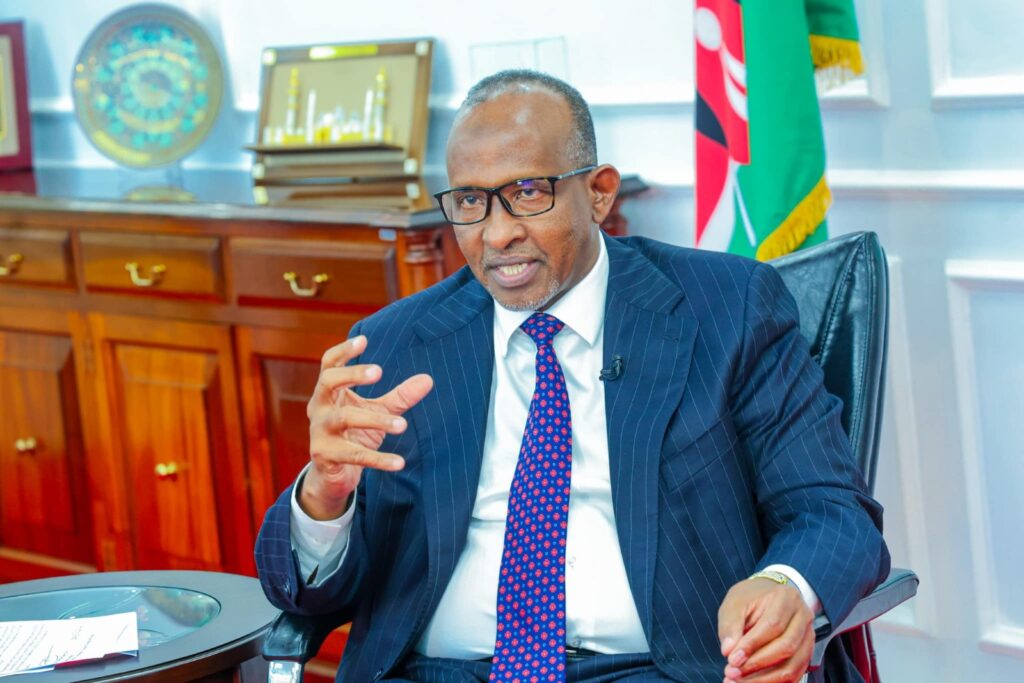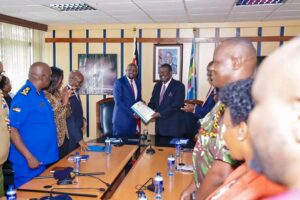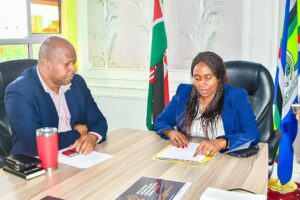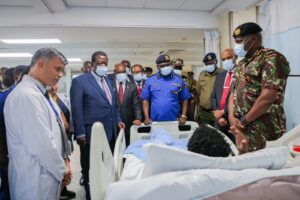Cabinet Secretary Aden Duale Discusses Kenya’s Environmental Priorities and Development Plans

In a revealing interview with Brigette Ngana, a reporter from Nakuru-based *Nation*, Cabinet Secretary for Environment, Aden Duale, outlined the government’s key priorities and strategies for sustainable environmental development in Kenya. The conversation covered a wide range of topics, from climate action and local economic growth to recent environmental policies and initiatives.
One of the central points of the discussion was the government’s recent decision to ban the export of raw veneer. Duale explained that the ban was a response to multiple petitions from stakeholders concerned about the environmental and economic consequences of such exports. He shared that a one-time permit had been granted to 16 companies, allowing them to export a total of 19,000 metric tonnes of verified stock held prior to the ban. However, moving forward, the Kenya Forest Service (KFS) has been instructed not to issue any new licenses for raw veneer exports. Instead, the Ministry is encouraging traders to invest in local factories for value addition, which aligns with the BETA (Building the Environment Through Agriculture) vision aimed at creating jobs and stimulating wealth within the timber value chain.
Another pressing issue discussed was the controversial Kiambu Road Wayleave, a 51-acre parcel of land originally gazetted in 1957 for a road expansion project. Duale highlighted that the expansion project, which began in 2018, is still under review, with careful consideration being given to both public interests and the rights of affected communities. The Kenya Forest Service is awaiting the report on public participation, as the matter continues to progress through the court system.
Duale also provided an update on the Kenya Water Towers Agency (KWTA), which officially ceased operations in January 2024. He reassured the public that the Ministry is conducting a thorough audit of KWTA’s assets, liabilities, and staff to ensure a seamless transition and integration of its work into ongoing environmental programs.
On climate change, Duale emphasized Kenya’s commitment to carbon markets as a pivotal solution for addressing climate challenges. With the recent approvals at COP29, Kenya has strengthened its regulatory framework to facilitate carbon trading. This move is seen as an important step in meeting the country’s climate goals under the Paris Agreement.
Finally, Duale discussed the Nairobi Rivers Cleanup initiative, a part of the broader Climate Worx Mtaani project. The project aims to restore the 117-kilometer Nairobi Rivers ecosystem, rehabilitating urban rivers while also creating livelihoods for local communities. This initiative is integral to the government’s broader urban renewal agenda and its commitment to sustainable development in the capital.
With these ongoing projects and policy shifts, Duale reaffirmed the government’s commitment to fostering both environmental sustainability and economic growth, working towards a balanced and prosperous future for Kenya.





